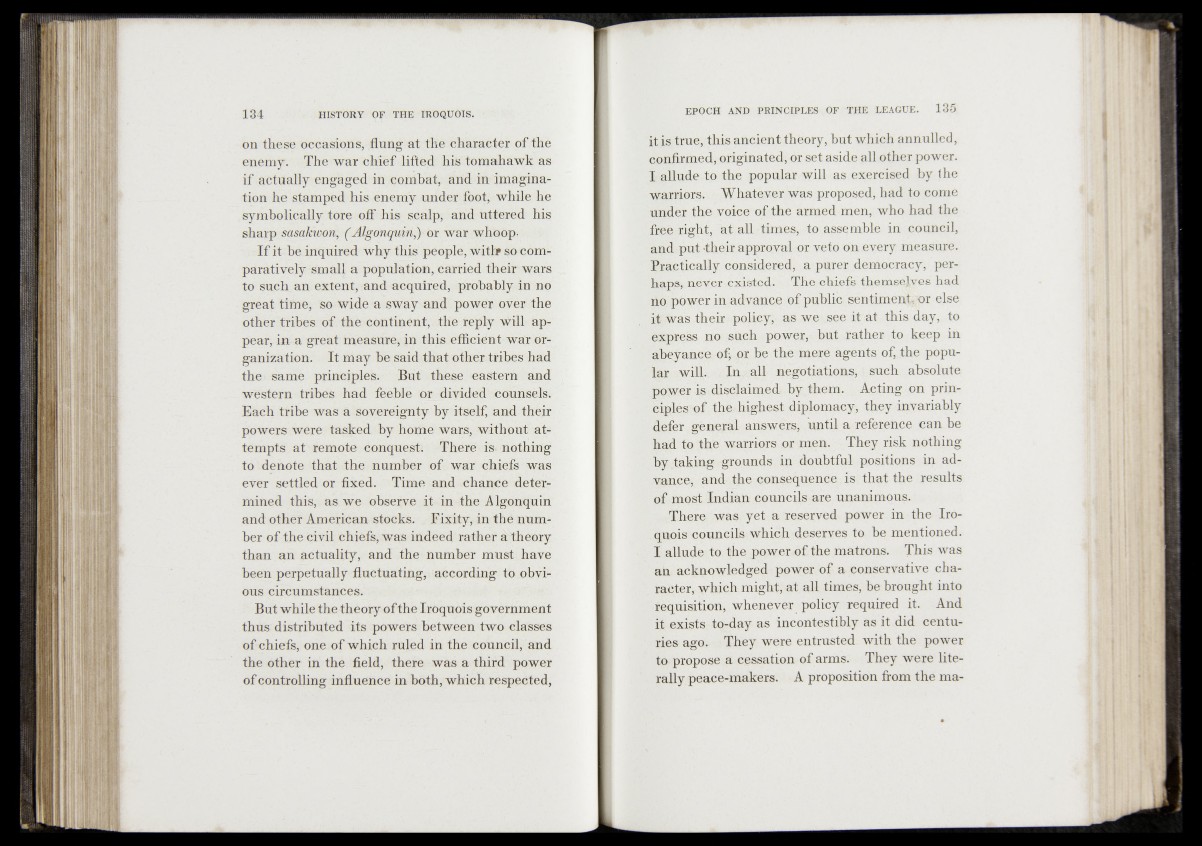
on these occasions, .flung at the character of the
enemy. The war chief lifted his tomahawk as
if actually engaged: in combat, and in imagination
he stamped his enemy under foot, while he
symbolically tore off his scalp, and uttered his
sharp sasakwon, (Algonqwri,)'Qi war whoop-
If it be inquired why this people, w-itlf so com-
parati vely sm all a population, carried their wars
to such an extent, and acquired, probably in no
great time, so wide a sway and power-over the
other tribes of the continent, the reply will appear,
in a great measure*- in this efficient war organization
It may be said that other, tribes had
the same principles. But these eastern and
western tribes had feeble or divided counsels.
Each tribe was a sovereignty by itself, and thejr
powers were tasked by home wars, without attempts
at remote conquest; There is* nothing
to denote that the number of war chiefs was
ever settled or fixed. Time and chance determined
this, as we observe it in the Algonquin
and other American stocks. Fixity* in the number
of the civil chiefs, was indeed rather fftheory
than an actuality, and the number must have
been perpetually fluctuating, according to obvious
circumstances.
But while the theory of the Iroquois government
thus distributed its powers between two classes
of chiefs, one of which ruled in the council, and
the other in the field, there was a third power
of controlling influence in both, which respected,
it is true, this ancient theory, but which annulled,
confirmed, originated, or set aside all other power.
I allude to the popular will as exercised by the
warriors. Whatever was proposed, had to come
under the voice of the armed men, who had the
free right, at all times, to assemble in council,
and put •their approval or veto on every measure.
Practically considered, a purer democracy, perhaps,
noyer ,existed. The chiefs themselves had
Uo power in advance of public sentiment, or else
it was their policy,- as we see it at this day, to
express no such,power, hut rather to keep in
abeyance of* pr be the mere agents of, the popular
will* V In v all negotiations, such absolute
power is disclaimed by them. Acting on principles
of the. highest diplomacy, they invariably
defer general answers, until a reference can be
had to the warriors or men. They risk nothing
by taking grounds in doubtful positions in advance,
and the consequence, is that the results
of most Indian councils are unanimous.
There was yet a reserved power in the Iroquois
councils which deserves to he mentioned.
I allude to the power of the matrons. This was
an acknowledged power of a conservative character,
which might, at all times, be brought into
requisition, whenever policy required it. And
it exists to-day as incontestibly as it did centuries
ago. They were entrusted with the power
to propose a cessation of arms. They were literally
peace-makers. A proposition from the ma